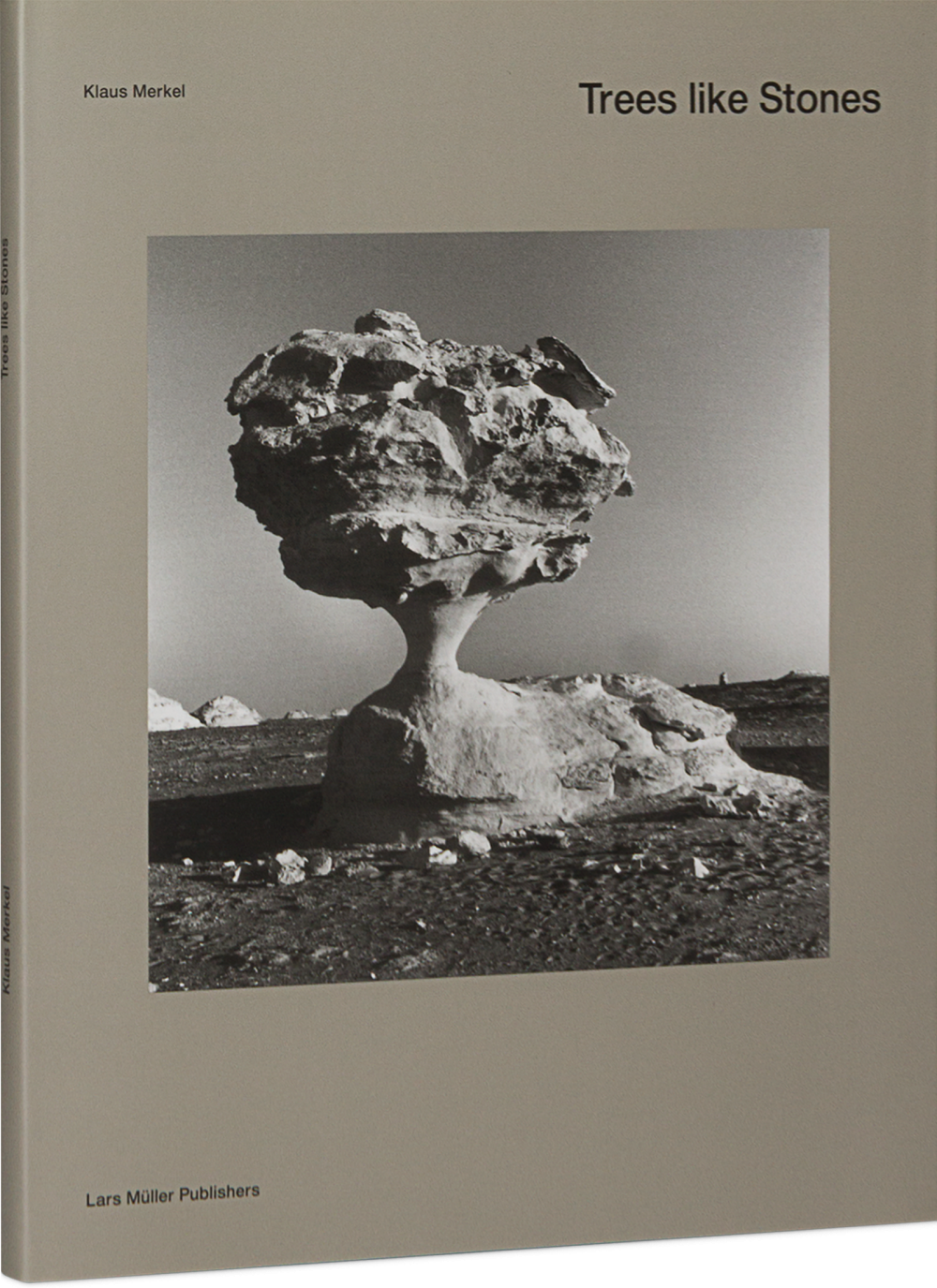
Trees like Stones
For over thirty years Klaus Merkel has been photographing stones, rocky landscapes, and trees that he pairs up in double pictures. He portrays the astounding harmony between the animate and the inanimate, between natural and designed manifestations. His previous publication Album of Stones featured Milan Cathedral’s forest of figures and pinnacles next to the sandstone columns of Utah’s Bryce Canyon. In the same way, Trees like Stones presents fascinating connections between natural forms and artwork, such as the millennia-old bristlecone pines in Nevada’s Great Basin National Park and the decaying stupa temples of Burma. The book thus invites the reader to examine and compare the manifold similarities of diverse structures, whether between a petrified wandering dune and a gaping trunk of an olive tree in Agrigento, Italy, or between a mushroom rock in the Libyan desert and a Namibian quiver tree.
For over thirty years Klaus Merkel has been photographing stones, rocky landscapes, and trees that he pairs up in double pictures. He portrays the astounding harmony between the animate and the inanimate, between natural and designed manifestations. His previous publication Album of Stones featured Milan Cathedral’s forest of figures and pinnacles next to the sandstone columns of Utah’s Bryce Canyon. In the same way, Trees like Stones presents fascinating connections between natural forms and artwork, such as the millennia-old bristlecone pines in Nevada’s Great Basin National Park and the decaying stupa temples of Burma. The book thus invites the reader to examine and compare the manifold similarities of diverse structures, whether between a petrified wandering dune and a gaping trunk of an olive tree in Agrigento, Italy, or between a mushroom rock in the Libyan desert and a Namibian quiver tree.
Part of the Trilogy of Stone and Time
English edition – also available in German








